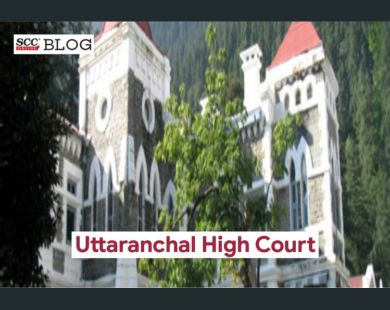Uttaranchal High Court: While allowing the revision petitions, the single judge bench of Ravindra Maithani, J. has held that Sessions court has erred in summoning the revisionists to answer the accusations under Section 319 of Criminal Procedure Code, 1973 (CrPC) as no prima facie case is made out against the revisionists.
In the case at hand, the revisionists were not named in the FIR. The victim when recovered did not name them, however, subsequent to it, when the victim was interrogated, at the stage of Section 161 of Criminal Procedure Code, she did not reveal the name of the revisionists; in her examination under Section 164 CrPC also the victim did not reveal the name of the revisionists.
The High Court said that bare perusal of Section 319 CrPC reveals that, when it appears to court, from evidence, that any person not being the accused has committed any offence for which such person could be tried together with the accused, such person could be summoned. The word “appears” has great significance.
Explaining the level of satisfaction to summon a person under Section 319 CrPC, the Court placed reliance on Hardeep Singh v. State of Punjab, (2014) 3 SCC 92, and held that summoning of an accused at the initial stage is something different than summoning of an accused at the stage of Section 319 CrPC. It is an advanced stage. Some of the persons have already crossed the level of charge and entered into the trial. Hence, at that stage, the level of satisfaction should be slightly higher than mere prima facie case.
The High Court further noted that,
“In a criminal trial, there are various stages where a person is approached by the system. It may be at the stage of arrest; when he is produced before the Magistrate for scrutiny of the arrest, i.e., at the stage of remand; at the stage of taking cognizance; while framing charge and at the stage when the final determination is made. The level of complicity at each stage is assessed based on the material available at that stage. Summoning of an accused is not a routine or mechanical exercise to be performed by the Magistrate.”
Hence, after considering the entire facts and statements of victim, the High Court allowed the revision petition and held that not even prima facie case is made out against the revisionists.
[Talib v. State of Uttarakhand, 2022 SCC OnLine Utt 1508, decided on 21-11-2022]
Advocates who appeared in this case:
Vaibhav Singh Chauhan, Advocate Pranav Singh, Advocate, Counsel for Revisionist;
Pankaj Joshi, Advocate R.C. Tamta, Advocate, Counsel for Respondent.






